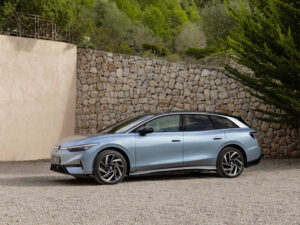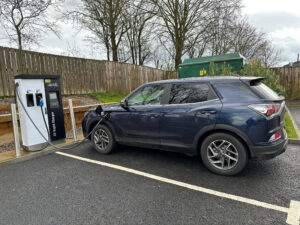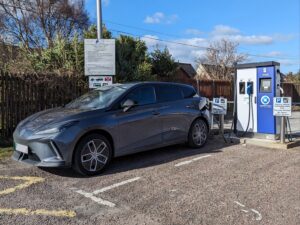On the 18th November 2020, the UK government announced the end of the sale of new petrol and diesel cars through a 2-phased approach.
- Step 1 will see the phase-out date for the sale of new petrol and diesel cars and vans brought forward to 2030.
- Step 2 will see all new cars and vans be fully zero-emission at the tailpipe from 2035 where the sale of new hybrid and plug-in cars will also be phased out.
Between 2030 and 2035, new cars and vans can be sold if they have the capability to drive a significant distance with zero emissions (for example, plug-in hybrids or full hybrids).
Get our FREE ‘GUIDE TO THE BEST EVs’ e-mailed directly to your inbox
£1.8 billion will be invested to support greater uptake of zero-emission vehicles for greener car journeys by introducing measures to include more chargepoints to build a world-class infrastructure network, alongside innovation for new clean technologies. This investment will improve air quality in towns and cities, and support economic growth, putting the UK at the forefront of the zero-emission vehicle revolution.
A further £1.3 billion will be invested to accelerate the roll-out of charge points for electric vehicles in homes, streets across the UK, and on motorways across England, so people can more easily and conveniently charge their cars.
To meet future demand, the government is providing grants for homeowners, businesses, and local authorities to install charge points, and is also supporting the deployment of rapid charge points. This had already supported the installation of over 140,000 residential charge points and 9,000 charge points for staff parking at businesses. The government has already supported the development of a network of over 19,000 public charge points, including over 3,500 rapid devices, in partnership with local authorities and private sector investment, making it one the largest networks in Europe.
The government has also pledged £582 million in grants for those buying zero or ultra-low emission vehicles to make them cheaper to buy and incentivise more people to make the transition.
Green number plates were introduced from December 2020 to increase awareness of cleaner vehicles on our roads and help local authorities bring in local incentives.
The government is further stepping up its commitment to help the sector transition towards zero-emission vehicles by boosting the development of clean, green technologies for zero-emission vehicles in the UK – from battery packs to recycling infrastructure and super-lightweight components.
As part of this, the government is committing £500 million of funding over the next 4 years through the Automotive Transformation Fund to put the UK at the forefront of the design and manufacturing of the next generation of zero-emission vehicles.
The investment will help build a sustainable supply chain that will form a vital part of the future industry, allowing the UK to progress, and help maintain its position in a globally competitive market. It will also support around 169,000 jobs in the industry, including manufacturing bases across the Midlands and the North East.










